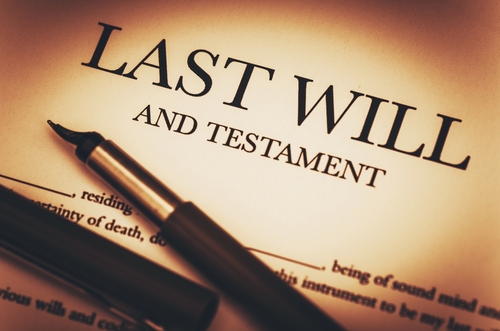Estate planning sounds complicated and forbidding to many people. They sometimes end up rushing the process or ignoring it altogether, leading to one or more of these common mistakes.
Failing to plan: Estate planning is not just for elderly rich people. Anyone over the age of 18 should have something in place. Are you young and single with few assets? You still want to appoint the right person to take care of your pet and decide who gets your car and controls your digital accounts at death (see below). You should make plans for potential disability. If you are a little older and have children, you absolutely need a will to appoint their guardians and a trust to handle assets you leave to them. Do you own a house? You should consider a will or a life estate to pass it on to children or other heirs (joint ownership with someone other than a spouse or life partner is not recommended; see below). Do you have a retirement account at work or an IRA? Planning is needed to name the correct beneficiaries and contingent beneficiaries. In short, any adult should do estate planning appropriate to their current situation and stage in life.
Leaving no liquidity to settle final costs: Some plans transfer everything to heirs through joint accounts, transfer on death accounts, and beneficiary designations. This leaves a problem for the executor and the heirs: How to pay for final expenses, such as funeral costs, income taxes owed, and credit card balances or other debts. This can have negative consequences for heirs, who may be responsible for some of those costs. Estate settlement will be simplified by having a solely-owned bank account or money market fund with enough cash to cover final expenses, and a will or trust that directs expenses be taken from that account.
Putting assets in joint name with children: This can cause tax headaches for the child named on the account or on the deed to the house. The act of putting their name on the account or deed is an immediate gift with potential taxable consequences. It also deprives other heirs of their share of the asset at death. What’s more, while you are alive the jointly-titled asset is now vulnerable to your child’s creditors or to a spouse at divorce. If you want to set up a joint account to have someone help pay your bills, it is better to skip it and appoint the child as your power of attorney instead. It is better to leave a house through a will, so that the gains in its value will be wiped out at death and not taxable, or through a life estate.
Not updating the estate plan: Planning for death or disability is not a static, one-time operation. Your circumstances will change, sometimes dramatically, over time. You should update your plan every time there is a birth, death, divorce, or sale or acquisition of major properties. Even if there have been no dramatic changes, you should review your plan every few years to make sure you still have the correct executors, guardians, custodians, beneficiary designations, and other items in place.
Forgetting digital assets: Your social media and other online accounts are real assets and you should appoint a power of attorney, trustee, or executor to handle them after death. Leaving a list of logins and passwords to your executor is a good idea. Your spouse or executor should also be given access to any online service on which you have stored valuable documents or photos.
Richard Schroeder, CFP®
Chief Investment Officer


